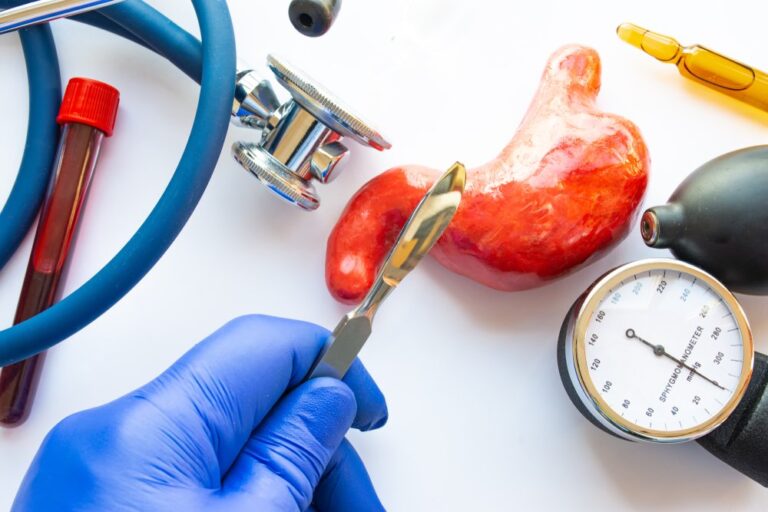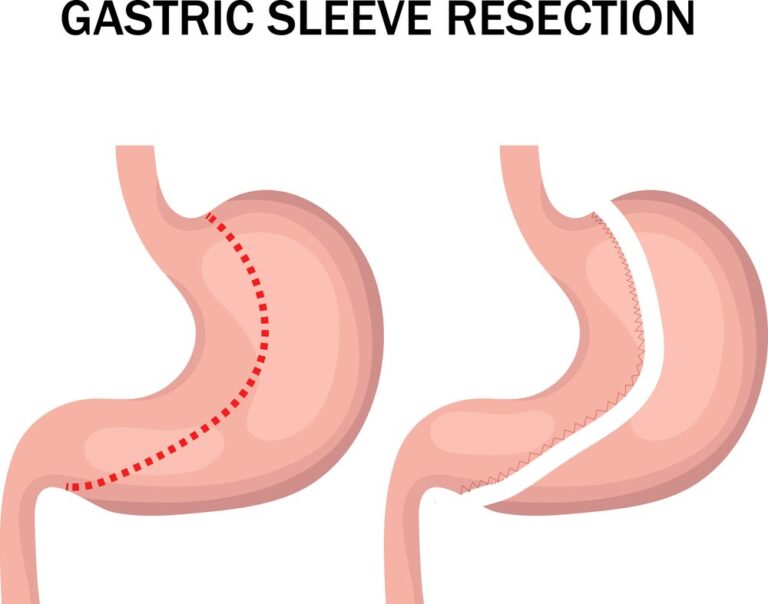
LIFE AFTER BARIATRIC SURGERY
Life after bariatric surgery is a new beginning. It’s a chance to start living the life you want, free of excess weight. It’s also a time to take care of yourself in ways that may have been impossible before surgery. You will be adjusting to a new way of eating and feeling—and learning how to manage your diabetes or other conditions. If you make good choices, your new lifestyle can become permanent.
The changes that occur after bariatric surgery are many and varied. Some patients experience dramatic weight loss immediately after surgery; others may take several months to see their first significant weight loss.
In addition to losing weight, most people who have bariatric surgery also find that their overall health improves dramatically.
What happens during the procedure?
Bariatric surgery usually involves making a small incision in the abdomen and removing some or all of the stomach (gastric sleeve), stomach, and part of the intestine (gastric bypass), or part of the intestine (sleeve gastrectomy). The surgeon then uses staples to close the incision. The amount of time it takes to recover depends on the procedure.
Your surgeon will give you specific instructions about when you can eat and drink again, when it’s safe to resume normal activities, and when physical therapy can begin. You will have to make changes in your lifestyle, but these changes can be rewarding.
Some of the changes are:
1. Eat healthily
Before surgery, your body was used to eating large amounts of food because it didn’t register that you had eaten enough. After surgery, you will need to eat much smaller portions of food. Your stomach will be smaller, and taking in more food than necessary could lead to health problems.
Most people who have bariatric surgery lose weight quickly—usually about a pound per week—and then their rate of weight loss slows down as time goes on.
Focus on fruits and vegetables, whole grains such as brown rice or oats, low-fat dairy products such as skim milk or yogurt, lean meats like skinless chicken breast and fish, beans (legumes), low-fat cooking methods (stir-frying), and healthy cooking oils such as olive oil or canola oil instead of butter or margarine.
Avoid processed foods that are high in fat and sugar—they will only make you gain weight again after surgery!
2. Exercise regularly
Bariatric surgery isn’t a magic bullet for weight loss or getting fit—you still must exercise regularly, drink plenty of water, and follow a healthy diet. But after having bariatric surgery, exercise is easier because it takes less energy than before the surgery to do the same amount of work or exercise for longer periods of time before becoming tired or fatigued.
Try walking for at least 30 minutes a day, six days a week. You can break up your walk into two 15-minute blocks if that’s easier for your schedule. You may want to start slowly and build up to longer walks over time as your physical fitness improves.
If you’re just starting out, consider walking with a friend or family member who has had bariatric surgery and can offer encouragement and support as you begin exercising again after your procedure.
3. Don’t skip breakfast
Breakfast is a great time to start your day. It’s the most important meal of the day, and it helps you feel energized and ready to take on the challenges of the day. It’s also important that you eat breakfast within an hour of waking up so that you don’t get hungry and overeat later in the day.
A healthy breakfast should contain at least 20 grams of protein, as well as some fiber. This will keep you full until lunch.
If you are having trouble eating breakfast at home, buy breakfast bars or granola bars from your local grocery store or drugstore. These are easy to grab on your way out the door in the morning, but they will still give you enough energy to start off your day strong!
4. Get plenty of rest during the day so that your body can heal properly at night
You’ll be more comfortable if you sleep on your back rather than on your stomach or side, which can cause pressure sores in the days following surgery. Also, take all medications as prescribed by your doctor.
You may also need to take antifungal medications for several months after surgery if you have a history of yeast infections or thrush (a fungal infection of the mouth).
5. Stay hydrated
After bariatric surgery, your body needs more water than usual. Your stomach is smaller, and you are still adjusting to the changes that have occurred in your body. You can consume any liquid, but water and juices are especially good choices because they provide essential vitamins and minerals.
You should be drinking at least 64 ounces (8 glasses) of fluid each day. If you find yourself feeling thirsty, that’s a sign that you need to drink more. Your doctor or dietitian will recommend how much fluid you should consume each day based on your weight loss goals and activity level.
6. Avoid alcohol
Alcohol isn’t good for anyone, but it’s especially bad for those who’ve had bariatric surgery. When you drink, your body absorbs alcohol more quickly than it used to because of your smaller stomach size. This means that drinking even one glass of wine or beer can cause you to feel drunker than usual and increase your risk of health problems like liver damage, high blood pressure, and heart disease.
Drinking can also make it harder for you to lose weight or keep the weight off. Alcohol contains calories that turn into fat when they’re digested. And if you drink too much alcohol, you may eat more than usual because it makes you feel hungry (even when your stomach is empty).
7. Prepare for the possibility of complications
The most common complication after bariatric surgery is an infection caused by bacteria entering the wound during the operation. To prevent this, follow all instructions from your doctor before and after the operation, especially those related to hygiene and wound care.
In addition, postoperative nausea and vomiting (PONV) is also common after bariatric surgery. The best way to reduce PONV is by taking medications prescribed by your doctor before and after surgery to prevent this problem from occurring.
Life after bariatric surgery can be challenging, but patients can expect a lot of positive changes in all aspects of their life. if you are considering a bariatric procedure in Miami, we can help you. Contact our center today for a free consultation.





